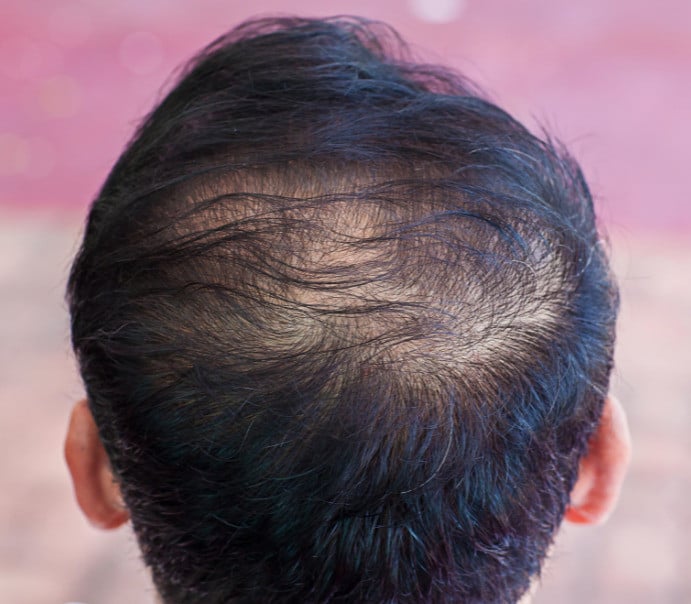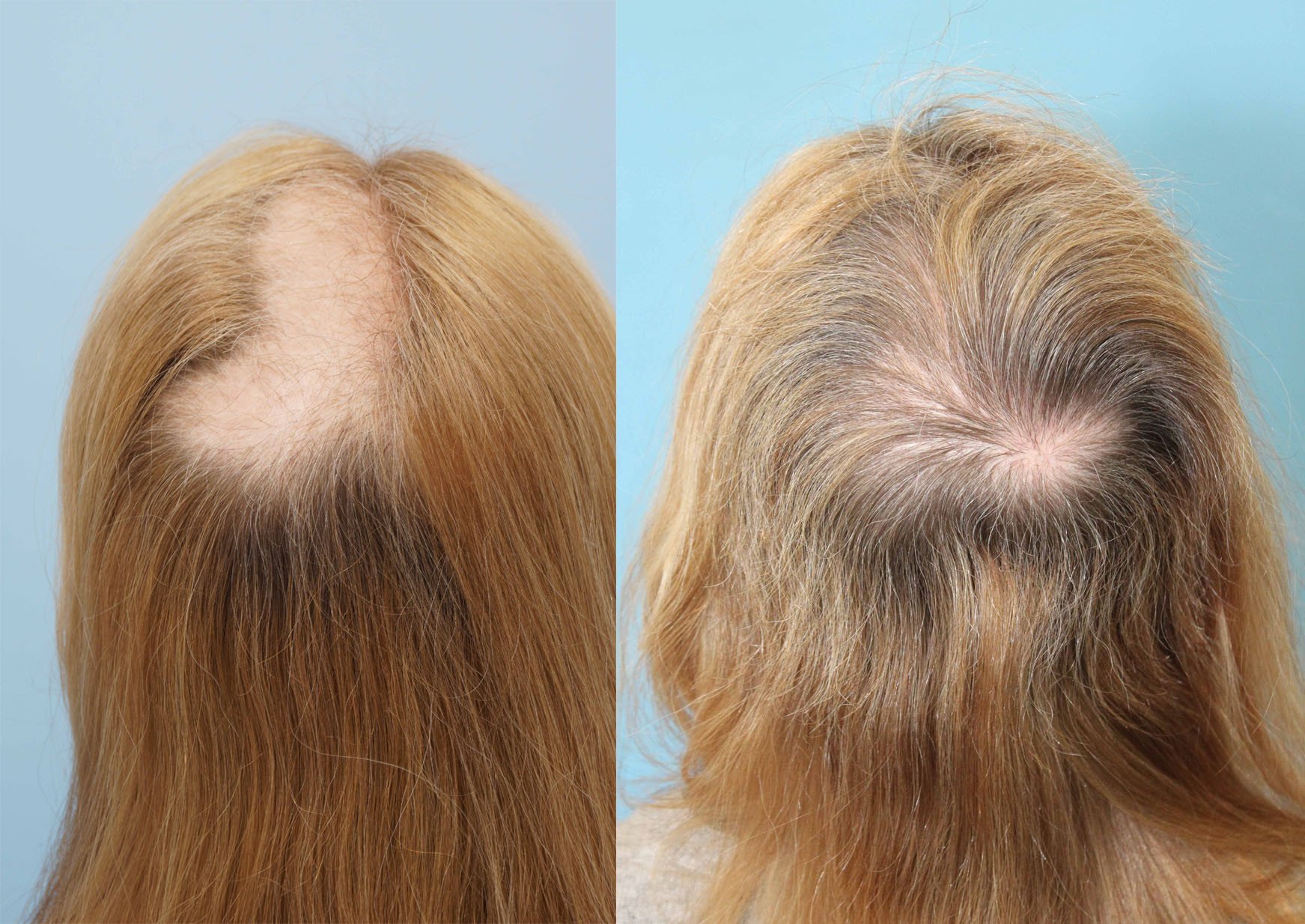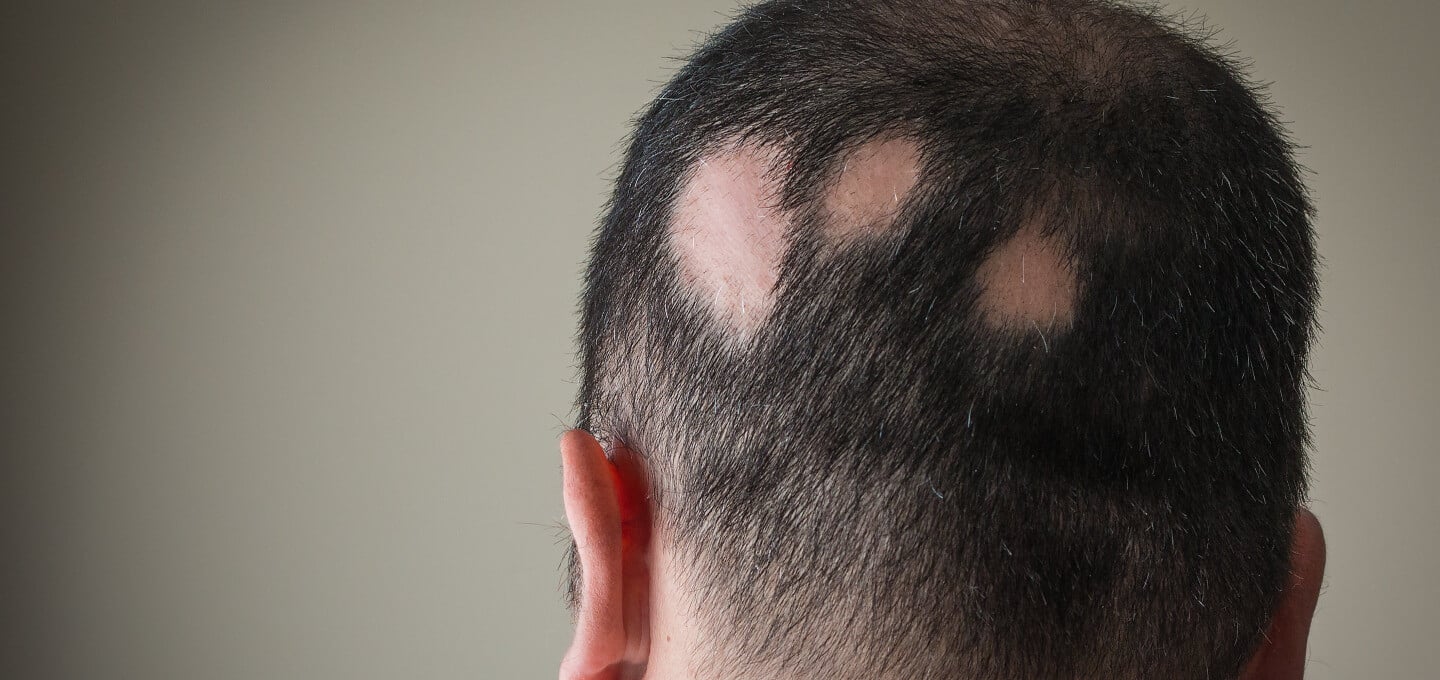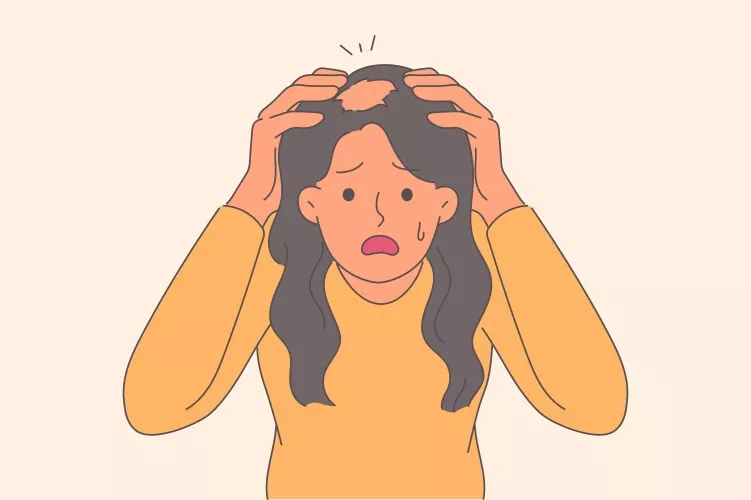Stress is one of the leading factors contributing to hair loss, second only to genetics. It can impact your scalp and hair through various inflammatory responses, causing conditions like telogen effluvium, trichotillomania, and alopecia areata. Here’s what they mean:
1. Telogen Effluvium

Telogen effluvium is a frequent cause of temporary hair loss, where stress pushes hair follicles into a resting phase, hindering new hair growth. This condition can result in significant hair shedding during routine activities like washing, combing, or even touching your hair. Other causes include poor nutrition, serious infections, major surgeries, hormonal shifts, and certain medications. The condition comes in two types: acute, which lasts less than six months, and chronic, which persists for longer. Symptoms generally include an increase in hair loss without any additional symptoms like rashes or itching.
2. Trichotillomania

Trichotillomania, or hair-pulling disorder, is another result of chronic stress and anxiety. This obsessive-compulsive disorder involves pulling out hair from the scalp, face, or other body parts due to stress or tension. While the exact causes are still being researched, genetic factors, brain chemistry, and high levels of stress are believed to contribute. Fortunately, treatment options like medication and behavioral therapy can help. Key symptoms include visible bald spots, significant emotional distress, and repeated but unsuccessful efforts to stop pulling hair.
3. Alopecia Areata

Alopecia areata is an autoimmune disorder where the body’s immune system mistakenly attacks hair follicles, causing sudden hair loss in patches. This condition can affect the scalp, face, and even other parts of the body. Although hair may grow back, it often falls out again. Genetics seem to play a role in predisposing some individuals to this condition, while stress and illness can act as triggers. Symptoms may include sudden patchy hair loss, brittle nails, and even burning or itching sensations in the affected areas. If eyebrows or eyelashes are lost, eye irritation can occur as well.
Luckily, stress-related hair loss is generally temporary. Once the stress is managed, hair growth usually resumes. Consulting a healthcare professional can also aid in finding solutions. Meanwhile, here are some simple remedies to help reduce and prevent hair loss:
Simple Remedies to Stop and Prevent Hair Loss
1. Meditation and Breathwork
Incorporating meditation and breathing exercises into your daily routine can help relieve stress and anxiety. Apps like Calm or Headspace offer guided meditation and relaxation techniques to help you decompress.
2. Positive Environment
Creating a pleasant and calming environment in your workspace can positively impact your mental health. Personalizing your space with plants, textures, and favorite objects can elevate your mood and lower stress.
3. Scalp Stimulation
Massaging your scalp with hair oil can improve blood circulation, which helps stimulate hair follicles and potentially promotes hair growth.
4. Tension Release
Practicing muscle-tensing exercises allows your body to identify areas of stress, helping you release tension and replace anxiety responses with relaxation.
5. Balanced Diet
Maintaining a diet rich in essential nutrients like iron, vitamin D, and zinc is vital for healthy hair. If you're concerned about nutritional deficiencies, consider supplements like Viviscal’s Hair Growth Programme, which supports hair health.
6. Platelet-Rich Plasma (PRP) Treatment
PRP therapy involves injecting concentrated platelets into the scalp, which can stimulate hair growth by enhancing the hair follicle environment.
7. Low-Level Light Therapy
This treatment uses low-level light to stimulate protein production within the scalp, potentially strengthening hair and supporting regrowth.
8. Positive Activities
Participating in activities that bring you joy and fulfillment can have a direct impact on your stress levels. By making time for hobbies or pursuits that elevate your mood, you can better manage stress and reduce its impact on your hair.
Addressing your stress and adopting these measures can help reduce hair loss and encourage growth during challenging times.









COMMENTS
Comments are moderated and generally will be posted if they are on-topic and not abusive.
For more information, please see our Comments FAQ